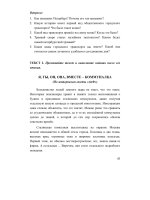3640 stvalentines day
Bạn đang xem bản rút gọn của tài liệu. Xem và tải ngay bản đầy đủ của tài liệu tại đây (223.23 KB, 2 trang )
Working list
Ex.1.
Thing out and write down, what love is for you?
________________________________________________________________________________________
____________________________________________________________________________________
____
What is the ideal love?
________________________________________________________________________________________
____________________________________________________________________________________
____
Ex.2
What properties of love do you know?
Ex.3 Read and translate the text below.
Valentine's Day History
Saint Valentine, according to romantic legend, was a kind-hearted
Roman priest who married young couples against the wishes of Emperor
Claudius II, and was beheaded for his deeds on the 14th of February. In
truth, the exact origins and identity of St. Valentine are unclear.
According to the Catholic Encyclopedia, "At least three different Saint
Valentines, all of them martyrs, are mentioned in the early martyrologies
under the date of 14 February." Two of these men lived in the third
century A.D., one being the bishop and the other a priest of Rome. (Some
speculate that these two figures were actually the same man.) Both seem
to have been persecuted for their beliefs; the Roman priest was beaten
and then beheaded on or about the year 270. Legends vary on how the martyr's name became connected with
romance: the date of his death may have become mingled with the feast of Lupercalia, a pagan festival of
love, or with the ancient belief that birds first mate in the middle of February. In modern times Valentine's
Day
is
a
day
of
special
romantic
sentiment
and
gift-giving
among
lovers.
martyrs – мученик, bishop – епископ, priest – священник, persecute – преследовать, mingled – смешанный, pagan –
языческий.
Ex. 4.
Do you know any more stories about St.Valentine?
Ex.5. Please, tell us your Lovestory.
Ex.6
How to celebrate this holiday?
St Valentine’s Day comes on February 14. It is not a legal or a national holiday. Banks and offices are not
closed, but it is a happy little festival for young people. It is widely celebrated among people of all ages by
exchange of “valentines”. A “valentine” may mean a special greeting-card or a little present. It may be for the
person who receives the gift. St Valentine is the patron of sweethearts. February 14 is the anniversary of his
death. The day is the time to send little gifts to those you love. Flowers and candy are favorite presents which
sweethearts send to each other. Valentine candy is packed in red heart-shaped boxes and sold for this one day.
Valentines are special greeting cards. They are often colored red, have red trimmings and pictures of hearts.
Some “valentines” are very fancy, they are trimmed with paper lace and little paper ribbon. They have verses
of love poetry printed on them. It is a good day for parties, especially by young people. The hosts trim the hall
with red and white paper hearts. Refreshments are often colored red, like red candy and punch. Sandwiches
and cakes are often cut in the shape of hearts. Sometimes, a King and Queen of Hearts are chosen for the
evening of dance.
patron of sweethearts – покровитель любящих. Anniversary – годовщина.
Trimmings – отделка. Fancy – причудливый. Lace – тесьма, кружева. Verses –
стишки.
Ex.7 Imagine: you’ve got a date today. Please, cook something special
for your honey friend. It must be your St.Valentine’s dish. Write
down, what ingredients you need and the recipe.
Ex.8 Let’s sing a song “Let’s do it!”
Ex. 9 Write down your wishes to your friends on valentine.









